
views
Preparing the Oil for Cold Drinks
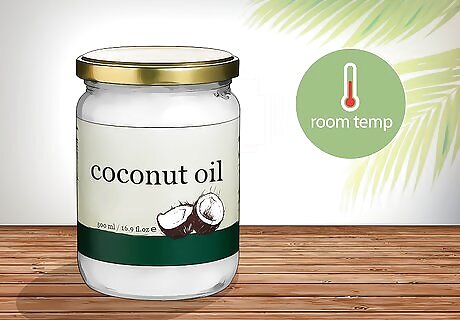
Let the oil sit out at room temperature if you have enough time. Coconut oil is partially solid at room temperature, and you will need to soften the oil by bringing to room temperature before mixing it into something to drink. Once at room temperature, the oil can be stirred until it is pliable for mixing.
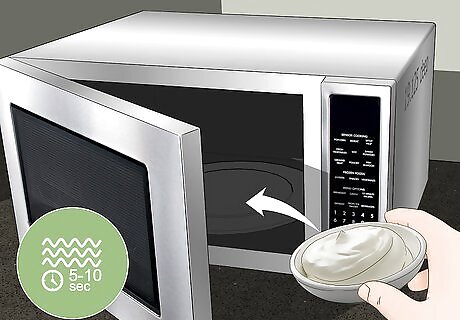
Heat the oil using a stove or microwave if you're in a rush. If you are going to heat it using a stove, use very low heat. If you are using a microwave, heat the oil 5-10 seconds at a time so as not to burn it or make it too hot to add to your drink. Then, stir with a spoon or fork until smooth and creamy in consistency.
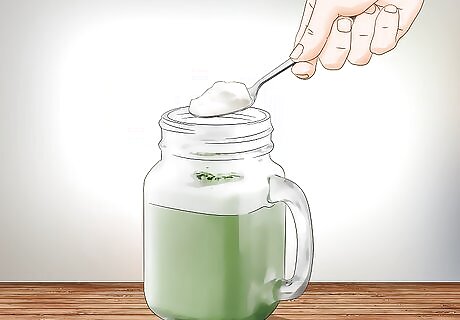
Mix the oil with any cold drink. You can stir the oil into a cold drink simply by adding it (once it is smooth) with a spoon and stirring it into the mixture. If you are blending a frozen drink, like a smoothie, just lightly heat the oil, or stir it until it is smooth. Once smooth or liquid, add the oil very slowly to the blender so that it does not form chunks.
Drinking in Hot Liquids and Foods

Use the oil at room temperature, straight from the jar, for hot liquids. There is no need to preheat the oil if you are adding it to a hot drink. If you like coffee or tea, you can use the oil straight out of the jar: just stir a spoonful of the semi-solid oil into the drink, and let the hot liquid do the work for you. Keeping a jar of the oil near your coffee or tea pot is a great way to start, since it will melt and mix easily with hot drinks. The oil also pairs well with coffee flavors, and with teas like black tea, chai tea, and other nutty tea flavors.
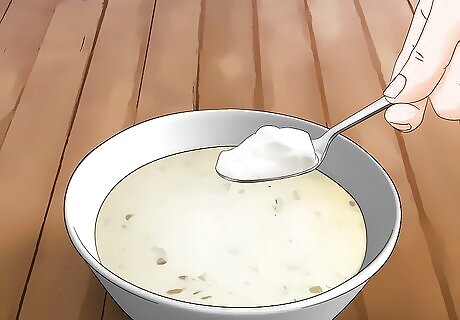
Add the oil to stocks, soups, and sauces. Coconut oil is used in many soups, and so it can be added to them easily right from the jar, making for another easy way to work it in to your daily consumption! It pairs well with chicken, and is often used in Thai soups, and Indian recipes. It can also be the oil base for a sauce, in place of olive oil or butter.
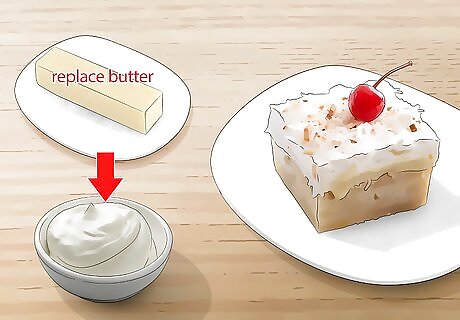
Use coconut oil in place of butter when baking. Coconut oil has a similar consistency to butter, and is a great substitute for butter when baking. Simply substitute the same amount of oil for whatever amount of butter your recipe calls for, no math needed!
Deciding How Much to Use
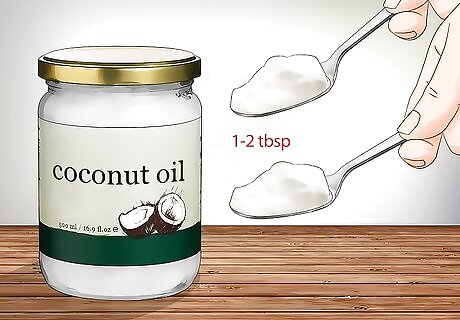
Figure out how much you want to consume on a daily basis. 1-2 tablespoons a day is usually recommended, but the amount will vary from person to person. Consider whether you are attempting to follow a program that requires a set amount, or if you are simply trying to replace less healthier options. If you are implementing a specific program, find out what you should use according to the plan. Whether you are aiming for complete substitution for other oils, or just want to consume a regular amount daily, you want to be clear about the amount you want to be taking in. Coconut oil, no matter how healthy, is still an oil. You don't want to take too much and risk adding too much fat or cholesterol to your diet.

Start slow and build up to your goal. You want to ease your way into the process. Coconut oil can have some effects on your digestion in the beginning, and so to avoid those complications you want to build up to your daily intake goals. Try it a little bit at a time, and see how it feels. Start with one teaspoon once a day for a couple of days, then go up to twice a day, or two spoons in one coffee, etc., until you have reached your daily intake goal. This process should take between 1 and 2 weeks.

Maintain your daily intake, and maintain balance in your diet. Once you have achieved your goal, maintain that same daily intake amount moving forward. Remember that the oil is still a source of fat, calories, and cholesterol. Even with its possible health benefits, too much of the oil might raise your cholesterol, or add too many calories to your regime, and so you might need to remove other sources of fat accordingly.




















Comments
0 comment